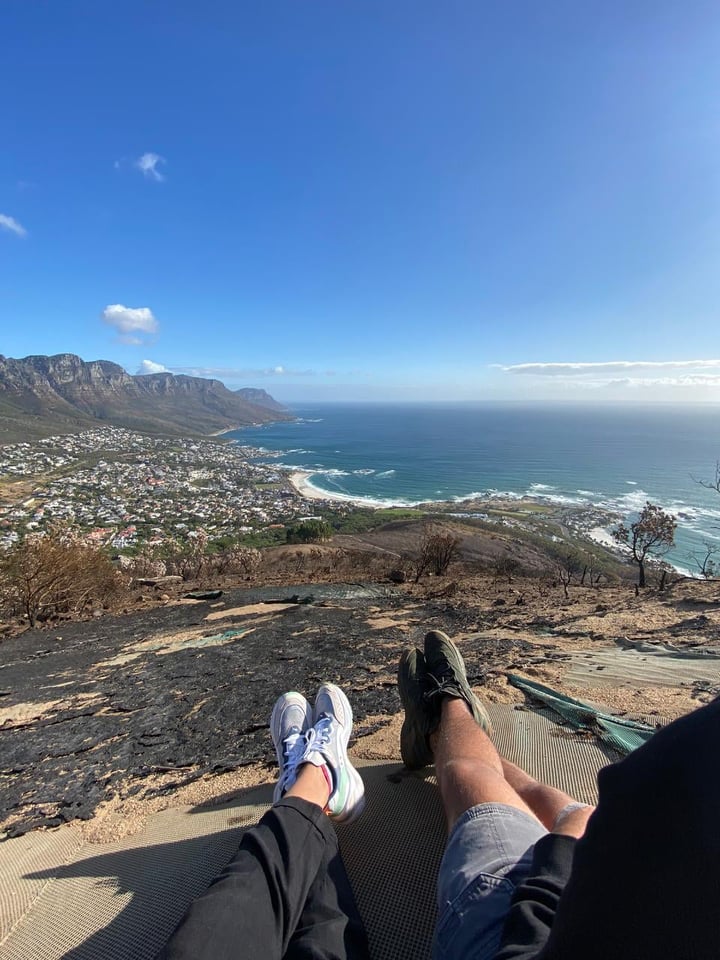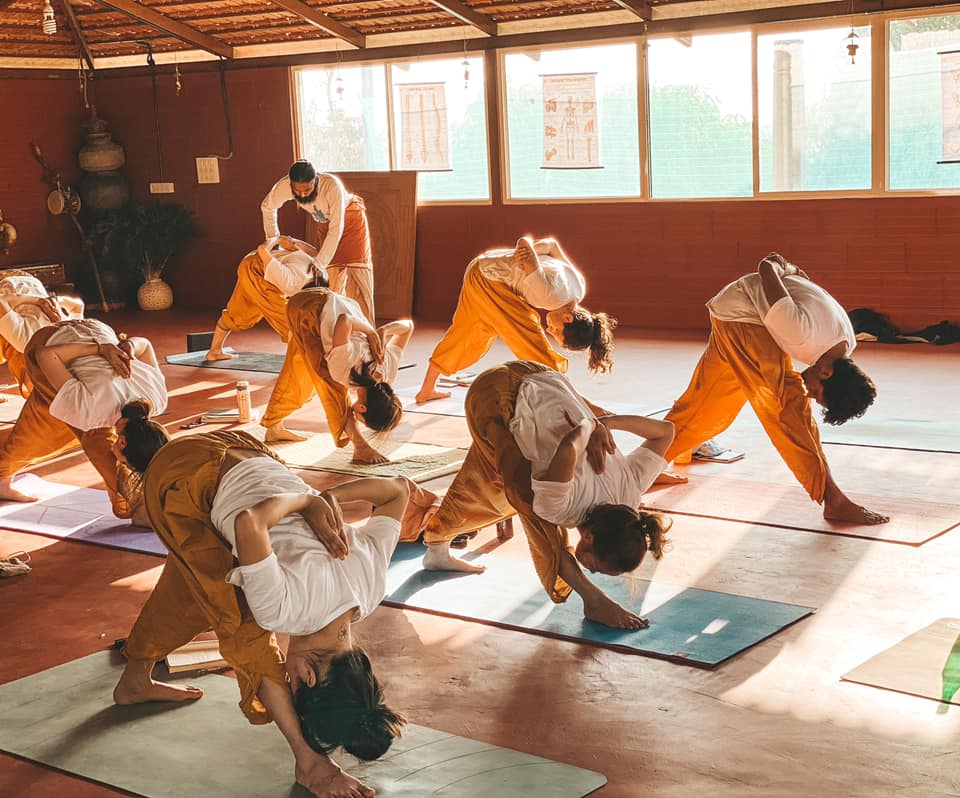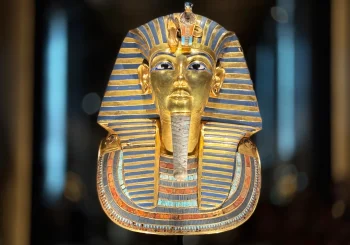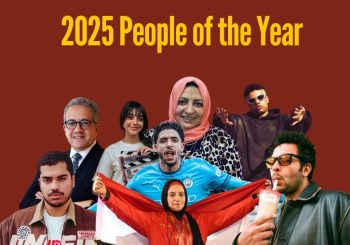Travel has always been regarded as an enriching experience, whether it be for ‘business or pleasure’. Since the COVID-19 outbreak however, travel has gotten to be a lot more of a complicated matter. It has been proved that travel has been a sure way of spreading the virus, as such, airports worldwide started imposing extreme new measures and even travel bans.
As a result of how fast the pandemic spread, and how fast airports worldwide took the decision of imposing travel bans and closing altogether, many travelers found themselves having to cut trips short or found themselves stuck abroad with no sure way of returning to their respective countries.
In Egypt, the government decided to shut down its airports effective March 19 until March 31 to circumvent the outbreak’s infection rates, leaving many Egyptians at a loss as to how to navigate a return. This closure was later extended to April 15.
Egyptian Streets spoke to three Egyptians, each of whom with a different travel experience, to share their stories following the outbreak and the temporary travel ban in Egypt.
A honeymoon cut short in a race against time
With its tropical weather, beautiful vistas, pristine beaches and generally pocket friendly options, southeast Asia has been an exceedingly popular honeymoon destination in recent years. Many young couples flock to the likes of Bali and Phuket in order to enjoy a paradise-like atmosphere as they venture into their new life together.
That was exactly what newlyweds 30-year-old Dina Wafy and 32-year-old Mohammed Medhat had in mind for their honeymoon which was scheduled to be from March 7 until March 22. The young couple had planned on going to Bali, Singapore and Kuala Lumpur.
“The beginning of the trip was filled with excitement, fun, adventure and relaxation. Towards the end, it was very stressful and full of uncertainty, exhaustion and sleep deprivation,” says Wafy when asked about how the dream-like honeymoon trip turned sour following the news of Egypt’s airport shut down.

“We had just ordered dinner when we heard about the travel ban from a friend who was already visiting Sri Lanka at the time,” explains Wafy, “my first thought was to ignore her texts and just eat. I was in complete denial, but half way through the meal everything started sinking in.”
The young newlyweds quickly realized that they would have to cut their trip a few days short in efforts to try to make it back home to Cairo before the airports would be shut down. “The night when the travel ban was announced was our last in Bali and we were scheduled to catch a flight to Singapore the next morning,” Wafy told Egyptian Streets, “our options were to either extend our honeymoon to the end of the month, or cut it short half way through and head back home.”
Knowing that extending their trip would be risky as airport closures may be extended, they opted to look for ways to get back to Cairo by any means necessary. “We re-booked a flight from Singapore to Egypt, with an 11 hour transit in Dubai,” Wafy recalls and continues to say that, “It wasn’t until the following morning that we realized the full gravity of the situation. We were not allowed to board the flight from Bali to Singapore. Apparently a couple of hours before we were supposed to board, Singapore banned all flights from Asian countries. That was quite possibly our lowest point. It was when we realized we wanted to get back home more than ever.”
After a lot of back and forth with the airport and airlines, as well as a lot of difficult decisions to be made, Wafy and Medhat finally managed to find a solution: a slightly expensive plane ticket that would include two transit stops, and after a very long journey, they would make it back to Cairo exactly one hour before the airport’s official shut down.
“The moment the plane landed on Egyptian soil was almost too good to be true,” says Wafy gratefully, “we were filled with inexplicable relief. Cutting our trip short was the best decision we have ever made, especially now that the ban has been extended for another couple of weeks.”
An extended vacation: adapting to the COVID-19 outbreak in SA
Twenty-seven-year-old Somaia Omar and her husband 29-year-old Ahmed Abdullatif had a slightly different experience with their travel plans. This young couple had planned what was supposed to be a normal 15-day vacation to Cape town, South Africa starting March 12.
Following the announced travel ban and airport closure in Egypt, the couple decided to extend their stay rather than cut their trip short, since airports were scheduled to open again on March 31. Since then, Egypt’s airport closure was extended even further and the young couple is currently stuck in Cape Town on lock-down, with underway discussions with the Egyptian Embassy in South Africa on how to travel back home.

“I was slightly worried about traveling amidst the coronavirus outbreak, but that is why I had chosen to visit a country that was still far away from the situation and had barely reported any cases,” explains Omar, “even when I was getting my visa at the embassy, I felt reassured by the fact that there were so many people there also planning trips to South Africa just like me, and I made sure to take precautions since day one of traveling, carrying my alcohol spray with me everywhere.”
At the time of Egypt’s announcement of closing its airports, Omar felt as though it was unnecessary, at the time, to try to cut the trip short and opted for extending their stay instead.
“We had already booked our return flight for March 27, and since the airports were scheduled to open again on March 31, we thought extending for these four days wouldn’t make a big difference, especially since cases in South Africa were reported to be in cities far away from Cape Town and the country was still operating normally.”
The trip however quickly took a dark turn, in ways that the young couple hadn’t expected. “The trip completely changed once things started getting worse [in South Africa] and all of a sudden, panic started to ensue both across the country and amongst [myself and my husband],” explains Omar, “our visas were also almost expired, but thankfully South Africa reported that visas would automatically get extended for anyone stuck in the country.”
“Instead of being a fun trip, we are now just stuck indoors on lock-down,” comments Omar on the current situation. The young Egyptian couple however, decided to take matters into their own hands and be proactive about the situation rather than getting swept away by the uncertainty. They managed to find an affordable place to rent with a kitchen as to cook their own meals, as well as making efforts to keep in constant communication with the Egyptian Embassy in order to discuss their options. “We’ve decided to live here just as we would have back in Egypt,” Omar tells Egyptians Streets on how they’re dealing with their day to day life.
It seems as though the only option for Omar and Abdullatif now is to wait for the Egyptian Embassy to gather a certain number of Egyptians needing to get back home, so that they would be able to issue a plane especially for them. So far, the embassy has managed to collect 20 names, but they will still need a significant amount more.
In the meantime, Omar says that her work has also been accommodating to the situation. While the changes have proven to be costly for the young couple, they are managing to make due and staying optimistic that things will eventually pan out. “I just hope that people don’t lose their sense of humanity and connection amidst all this,” says Abdullatif, while Omar chimes in, “and I hope people can adjust to the current situation in the best way possible.”
Stranded in India: an opportunity to help
Nada Harfoush, a 27-year-old traveler, yogi and freelance graphic designer, had already been in India for about a month prior to the COVID-19 outbreak and continues to stay there at the Soham Ayur Yoga Ashram in Bangalore.
The young and spirited Harfoush explains that she is in India in order to, “give more time to my personal Yoga practice and Yoga teaching skills, help out my staff [at the ashram] and to invest time in my spiritual growth.”
Harfoush actually co-founded and currently runs the Soham Yoga school in Egypt, alongside her guru and business partner Sri Soham.
Upon hearing of Egypt’s recent travel ban and airport closure, Harfoush felt a sudden urge to help any fellow Egyptians who might have suddenly found themselves stranded in India. “Helping those in need is always the right thing to do. Feeling stranded, stuck and homesick and possibly broke, during a time where so many of our mixed emotions are being challenged can be quite intense,” explains Harfoush, “I heard some Egyptians were kicked out from ashrams and others from their hotel stays. I was immediately triggered to help out with anything I can possibly do.”
Harfoush quickly typed up a post and shared it on the popular Facebook group ‘Nomads’, which is a well-known amongst Egypt’s young traveler community, stating in it than any Egyptian stuck in India was more than welcome to come and stay at the ashram until decisions were sorted. At the ashram, there was the opportunity for any stranded soul to also meditate and practice yoga in the meanwhile.

“We haven’t taken anyone in yet. I’m in regular contact with our Egyptian Embassy and I truly hope my message manages to reach out to someone, eventually,” says Harfoush. She also goes on to say that, “I’m currently staying at the ashram with five other Egyptians, and we are practicing yoga and meditation daily with the other yoga practitioners from around the world.”
When it comes to how she has been dealing with the situation at hand, Harfoush has been trying her best to stay optimistic and keep both her spirit and of those around her high, saying, “I help my friends here by giving them the emotional support they need and by channeling some positivity, whenever I’m capable of doing so.”
“I also try to bring some humor to our situation, hoping it would add some light on this experience. I try to constantly remind them that this is a great chance to reflect on our inner selves,” she continued.
The young traveler is determined to ensure that fellow Egyptians who may be stuck in India have a safe place to stay until everything pans out. “Nobody knows what will happen tomorrow is obvious and yet hard to accept,” Harfoush says, “a friend I made during my stay at the ashram once shared with me this statement ‘God is the highest truth’. I think it is beyond us to imagine what happens next; I understand that the situation is not easy and we cannot suddenly pretend like none of this happened. I’m hoping the embassy would help us out, or a miraculous change would soon bring us back home.”
Recently, Egyptian authorities have extended the closure of airports until April 15. The only way Egyptians stuck abroad can get back home is by regularly checking in with their local Egyptian Embassy until they have gathered enough people to issue a plane for. In addition to this, the Egyptian Ministry of Emigration has also required all Egyptian nationals returning from abroad to sign a written acknowledgement that they will be quarantined for two weeks once back in Egypt in a hotel at their own expense; they will however, receive medical services free of charge.







Comments (0)